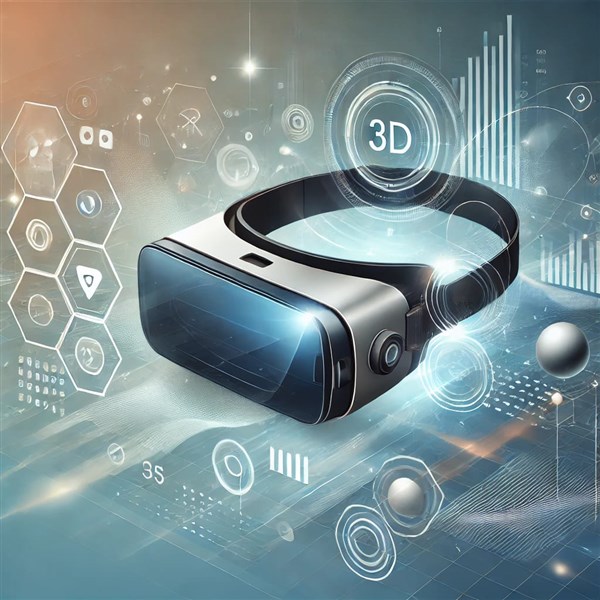
In today’s rapidly evolving technological landscape, few fields hold as much promise and potential as Augmented Reality (AR). Once limited to science fiction, AR is now a part of our daily lives, enhancing the way we interact with digital and physical environments. From entertainment and education to healthcare and retail, augmented reality is making its presence felt across industries. As AR continues to grow, so does the demand for skilled professionals who can create, implement, and innovate within this space.
Whether you’re a tech enthusiast, a software developer, or someone seeking a career change, enrolling in an Augmented Reality course can be a game-changer for your professional future. This blog will explore how acquiring AR skills through formal training can lead to exciting opportunities in gaming, education, retail, and more.
What is Augmented Reality?
Augmented Reality refers to the overlay of digital content—such as images, videos, sounds, or 3D objects—onto the real world, providing a more immersive experience. Unlike Virtual Reality (VR), which creates a completely virtual environment, AR enhances your existing surroundings by integrating digital elements in real-time. You might have experienced AR through apps like Pokémon GO, Snapchat filters, or even AR-enabled furniture apps that allow you to visualize how products will look in your home.
AR technology uses a combination of cameras, sensors, computer vision, and artificial intelligence to understand the physical environment and project relevant digital content. As AR technology becomes more sophisticated and accessible, industries are racing to integrate it into their business models, creating a demand for trained professionals.
Key Skills You’ll Gain in an Augmented Reality Course
An AR course equips you with both the foundational knowledge and hands-on experience necessary to succeed in this growing field. Here are some core skills that you’ll learn in an AR course:
-
Programming Languages and Frameworks
AR development requires proficiency in programming languages such as C#, C++, Python, or JavaScript. You’ll also work with AR development platforms like Unity, Unreal Engine, ARKit, and ARCore. -
3D Modeling and Visualization
Creating AR experiences often involves building or importing 3D models that interact seamlessly with the physical environment. You’ll learn to design, optimize, and manipulate 3D assets for a variety of applications. -
Computer Vision and Image Processing
Understanding how AR systems detect and interact with real-world objects is essential. Courses typically cover the basics of computer vision, allowing you to create applications that can recognize and track objects in real time. -
User Interface (UI) and User Experience (UX) Design
Crafting intuitive and engaging AR experiences requires a strong understanding of UI/UX principles. You’ll learn how to design interfaces that work well in mixed-reality environments and provide users with a seamless experience. -
Integration of AR into Mobile and Web Applications
As AR is heavily used in mobile apps, you’ll be trained on integrating AR functionalities into iOS and Android applications, enabling you to deploy your AR projects across multiple platforms.
Industries Where AR Skills Can Boost Your Career
The potential applications of augmented reality are vast, and by gaining AR skills, you open the door to career opportunities across multiple sectors.
1. Gaming
The gaming industry was one of the earliest adopters of AR, with hit titles like Pokémon GO captivating millions of users worldwide. AR adds a new dimension to gaming by integrating virtual characters and elements into the real world, creating immersive experiences. AR courses often include modules on game development, teaching you how to create engaging, interactive, and immersive experiences that can appeal to a broad audience. With AR game development skills, you can land roles as an AR developer, designer, or even an AR game director.
2. Education
AR is transforming education by making learning more interactive and engaging. From medical students practicing surgery with AR simulations to history lessons coming to life with 3D visualizations, the potential for AR in education is enormous. Courses that focus on AR development for educational applications will prepare you to create tools and platforms that enhance learning. As AR becomes more integrated into classrooms, the demand for professionals who can create these experiences will grow.
3. Retail
In retail, AR allows consumers to try before they buy. Whether it’s virtually trying on clothes, visualizing how furniture looks in your living room, or using AR to navigate a store, this technology is revolutionizing the shopping experience. Learning to create AR applications for retail environments opens up career possibilities in e-commerce, marketing, and customer experience design. Retail giants like IKEA and Sephora have already adopted AR, and more companies will follow suit.
4. Healthcare
Healthcare is another industry that benefits immensely from AR technology. AR is being used for surgical planning, training, diagnostics, and even patient education. By providing real-time, 3D visualizations, AR allows healthcare professionals to better understand complex medical conditions and procedures. Training in AR for healthcare can lead to roles in medical software development, AR-based training programs, and healthcare innovation.
5. Architecture and Construction
In architecture, AR is used to visualize and interact with building designs in a real-world context before construction begins. Construction professionals use AR to overlay digital blueprints onto job sites, making the planning and building processes more efficient. AR training provides the skills needed to create visualization tools and applications for architects, engineers, and contractors.
Why AR Skills Are in High Demand
The demand for AR skills is not only growing but accelerating. According to market research, the global AR market is expected to reach $97.76 billion by 2028. As AR becomes more mainstream and more industries adopt the technology, businesses are actively looking for professionals who can develop AR applications and solutions.
Moreover, with companies like Apple, Microsoft, and Google heavily investing in AR, it's clear that the future of technology is augmented. For professionals who want to future-proof their careers, gaining expertise in AR through formal training is a strategic move.
Conclusion
Taking an Augmented Reality course can significantly boost your career by equipping you with the skills and knowledge necessary to thrive in an AR-driven world. Whether you’re aiming to enter the gaming industry, transform education, innovate in retail, or improve healthcare solutions, AR offers endless possibilities. By mastering this technology, you position yourself as a valuable asset in a growing and dynamic field.
Investing in an Augmented Reality Course could be the key to unlocking your potential in the tech industry. With companies increasingly adopting AR technologies, there's never been a better time to enhance your skills and boost your career with AR.



development.jpgM.jpg)



COMMENT